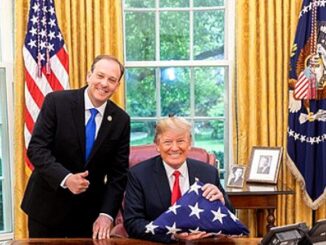
EUGENE, Oregon, February 10, 2021 (ENS) – The Ninth Circuit Court of Appeals, without explanation, today denied the request of 21 young people to have a full panel of the court hear their climate case against the U.S. Government. “We will now seek review in the U.S. Supreme Court,” declared the plaintiffs’ Eugene-based law firm Our Children’s Trust, because the court did not correct the “significant legal errors made in the January 2020 ruling.”
In this much-watched lawsuit, Juliana v. United States, a three-judge panel of the Ninth Circuit declined to consider the case in January 2020, ruling in a split decision, that the issue should not be decided in any federal court at all, but by the legislative and executive branches of government.
The lawsuit alleges climate-change-related injuries to the 21 plaintiffs caused by the federal government’s actions in continuing to “permit, authorize, and subsidize” fossil fuels.
Plaintiffs alleged violations of their constitutional rights, and sought an injunction ordering the government to implement a plan to “phase out fossil fuel emissions and draw down excess atmospheric [carbon dioxide].”
The panel didn’t deny that climate change is happening and that combustion of fossil fuels is causing it, but it did deny that it, or any federal court, has “standing” under Article III of the Constitution to decide the case.

Now, in addition to their appeal to the U.S. Supreme Court, the youth plaintiffs are requesting that the Biden-Harris administration defendants, who are most of the Cabinet, and the Department of Justice agree to meet with the plaintiffs to discuss settling their claims through a decree of the court, and thereby protecting their rights and the rights of all children to come.
Sahara Valentine of Eugene, one of the 21 plaintiffs in Juliana v. United States, says, “I hope and need the Biden administration to hear what the youth are saying, and to recognize how we are disproportionately affected by climate change and we will face the consequences of this administration’s actions and all the past administration’s actions. I hope that President Joe Biden will understand the crisis we’re in, stop fighting our claims and our rights, and will decide to come to the settlement table in our case.”
The team at Our Children’s Trust released a statement explaining why they will take the case to the Supreme Court. “The sharply divided decision of January 2020 cannot stand,” they write. “It says that the courts are powerless to set constitutional parameters on what the political branches must and must not do to remedy the climate crisis.”
District Judge Josephine Staton dissented from the Ninth Circuit’s January 2020 Opinion to the encouragement of the young plaintiffs. She wrote, “In these proceedings, the government accepts as fact that the United States has reached a tipping point crying out for a concerted response – yet presses ahead toward calamity. It is as if an asteroid were barreling toward Earth and the government decided to shut down our only defenses.”
‘Seeking to quash this suit, the government bluntly insists that it has the absolute and unreviewable power to destroy the Nation,” Judge Staton wrote.

“Plaintiffs bring suit to enforce the most basic structural principle embedded in our system of ordered liberty: that the Constitution does not condone the Nation’s willful destruction. So viewed, plaintiffs’ claims adhere to a judicially administrable standard,” she wrote. “And considering plaintiffs seek no less than to forestall the Nation’s demise, even a partial and temporary reprieve would constitute meaningful redress.”
Nathan Baring of Fairbanks, Alaska is one of the 21 plaintiffs in Juliana v. United States. Learning of the Ninth Circuit’s decision to deny their petition, he said, “Contrary to what some may believe, it does not provide solace to have a new administration at the reins without the judicially enforceable remedy we seek.”
“Political pressure does not recognize the fundamental rights of young people,” Baring said. “Political pressure does not give us the due process and equal protection we require. The court does that.”
“Today’s decision will rightfully feel like the court has abandoned its role as the necessary constitutional balance for children, a voteless population,” he said. “We are now left flailing in the rough seas of political expediency.”
“To quote Judge Staton from January 2020,” said Baring, “If plaintiffs’ fears, backed by the government’s own studies, prove true, history will not judge us kindly.'”
— ENS Staff
Copyright Environment News Service (ENS) 2021. All rights reserved.



